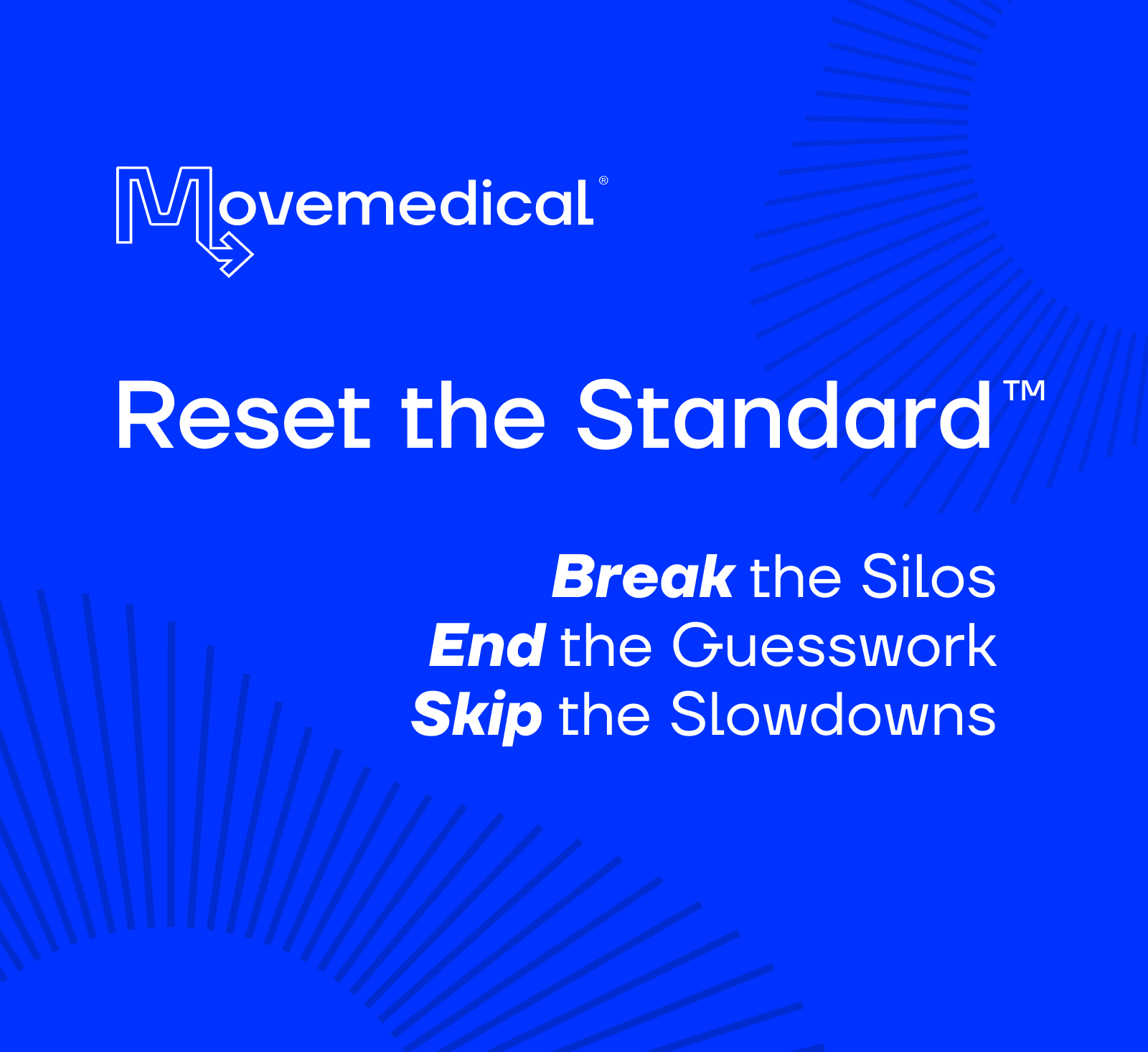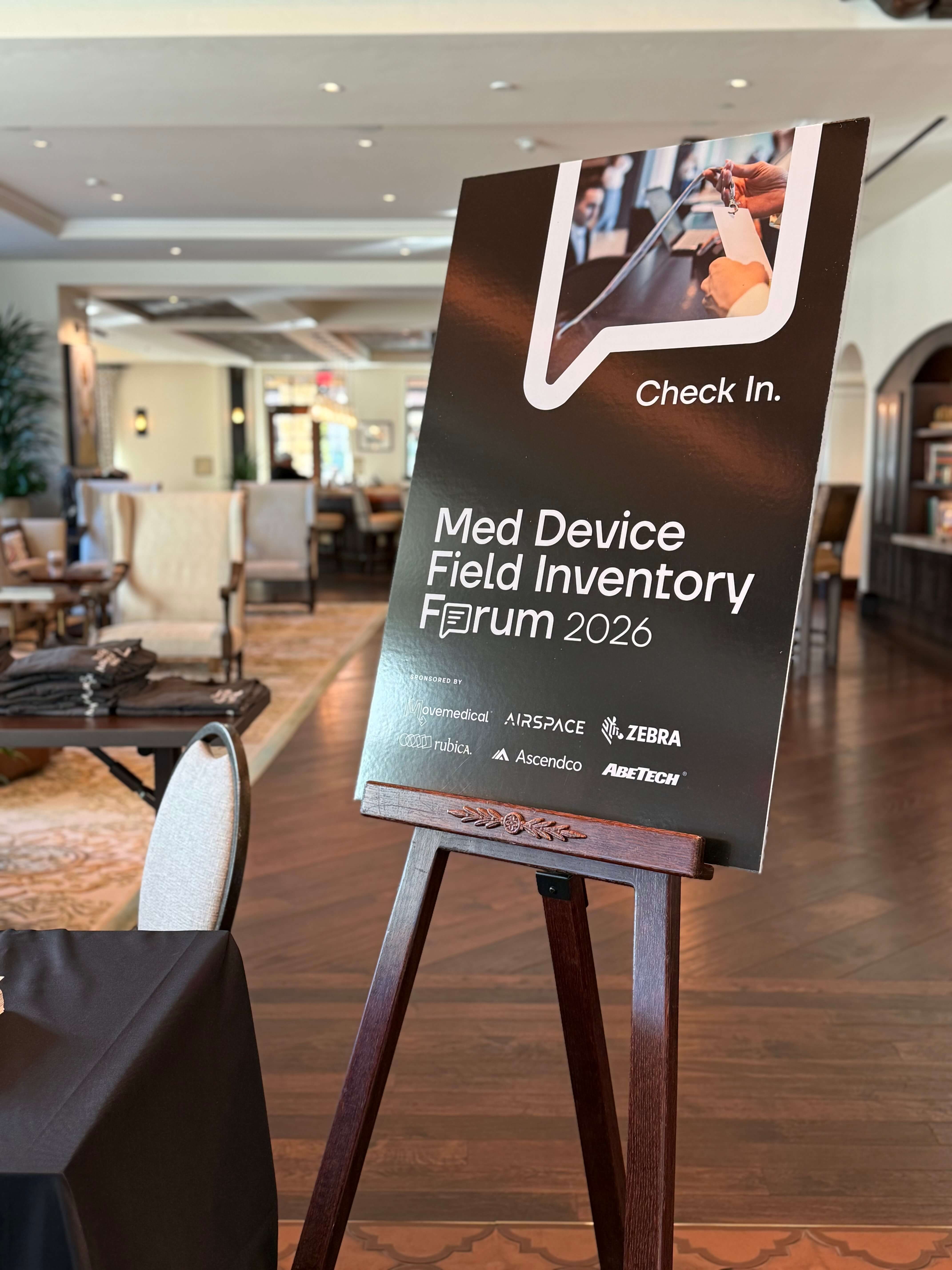Field inventory is one of the most complex, expensive, and misunderstood parts of any medtech organization. It’s also one of the greatest opportunities. When you improve how inventory is managed—when you bring true visibility, automation, and user-driven workflows into the equation—everything gets better. Less waste. Better service. More sales. Lower stress.
If you're responsible for commercial operations, field logistics, sales, or enabling reps with the right tools at the right time, this guide is for you.
Here’s what we’ve learned from partnering with some of the biggest and most innovative medtech companies in the world.
SETTING THE STAGE
Why Visibility and Automation Are Not Just Buzzwords
Let’s be clear: “visibility” doesn’t mean glancing at weekly inventory reports. It means knowing exactly what you have, where it is, who touched it last, and what it’s doing—in real time.
And “automation” isn’t about replacing people. It’s about letting systems do what they’re good at, so your people can focus on what they are best at—helping surgeons, serving patients, driving strategy, adding value, and growing your business.
Visibility is what gives you clarity. Automation is what gives you scale. Together, they unlock the kind of operational precision the industry has been missing for years.
The good news? You don’t have to guess at what works. After years of partnering with top medtech companies across the globe, we’ve seen what separates the best from the rest. There’s a clear set of best practices that consistently lead to better outcomes—faster, cleaner, and more scalable.
Best Practices for MedTech Field Inventory Management
If you want to win at inventory, start here:
1. Track Everything at the Item Level
Every single piece of inventory matters. Not just kits. Not just lots. Every box, screw, implant, and tray. Movemedical is the only platform we’ve seen that does this reliably in the field—not just inside the warehouse.
2. Automate the Repetitive Stuff
Let your system generate replenishment orders, create transfers, schedule pickups, and send return labels automatically. That’s not the future. That’s today. It reduces errors, increases speed, and frees your team from work they shouldn’t have to do.
3. Unify Your Scheduling and Inventory Processes
Cases drive everything. When your system connects scheduling, requesting, preferences, and sourcing—all in one workflow—you eliminate chaos. Movemedical’s integrated case calendar and preference card logic make this not just possible, but natural.
4. Help Your ERP Work Smarter
Don’t fight your ERP. Amplify its power. Movemedical connects natively with SAP, JDE, Oracle, and others, so orders, shipments, usage, and billing all sync automatically. That’s how you get clean data, accurate reporting, and full compliance—without duplicate work or double entry.
5. Embed Audits and Compliance Into the Process
Cycle counts, lot tracking, and expiration management shouldn’t be extra work—they should be part of the daily workflow. Movemedical’s advanced audit tools—including outcome & processing codes, Lost & Found, real-time replenishments, expiration control, and auto-generated returns—make it easy to stay ahead and reduce risk.
6. Standardize Without Slowing Down
Every rep. Every warehouse. Every territory. You need consistent processes that still adapt to local needs. With configurable workflows, access roles, and item-level operational management, Movemedical helps you scale without losing control.
The Steps to Get There (And How to Make Them Stick)
Here’s the roadmap we’ve seen work best:
Step 1: Choose a Compliant, Modern Platform
Don’t cut corners on adoption, scalability, security, or validation. The platform must enable both sales and ops to perform at their best. Movemedical is HITRUST-certified, ISO-aligned, HIPAA-compliant, and validated to FDA 21 CFR Part 11 standards. That’s table stakes for enterprise-grade performance.
Step 2: Align on a Phased Approach
Start with the front lines. Give sales reps and field teams easy tools to schedule, request, and bill. Then move to operational transformation and deeper inventory control. Finally, optimize with analytics, automation, and special projects.
Step 3: Build the Right Team
You need champions from sales, ops, IT, customer service, and compliance. Don’t forget your ERP analysts and trainers. Implementation isn’t a one-department job—it’s a full-team sport.
Step 4: Set New Operational Standards
People resist change when it feels unclear or optional. Communicate clearly. Let your team know what “great” looks like now—and why it matters. When leadership commits to operational excellence, the rest of the team follows.
Step 5: Train for Adoption, Not Just Access
Software only works if people use it. Movemedical’s training and certification process—LMS, live sessions, embedded help, and role-based design—drives 98%+ user adoption at enterprise scale. That’s how you get ROI and lasting momentum.
Real Outcomes: Our Partners Turn Inventory Into Strategic Advantages
When our global medtech partners embrace this approach, the impact is real. These aren’t theoretical benchmarks—these are proven results from global enterprise organizations just like yours:
- 20–30% reduction in field inventory
- 3–5x faster order-to-bill timelines (O2C)
- 98%+ adoption rates across all user groups
- 75% reduction in expired inventory and write-offs
- Clearer decision-making with better data
You move faster. You gain control. You increase trust between sales and ops. You serve your surgeons better. That’s the kind of transformation that changes your business.
Don’t Just Manage Inventory, Lead It
You don’t have to accept chaos, spreadsheets, or siloed systems. With the right platform, the right process, and the right people, inventory becomes a competitive advantage—not a burden.
At Movemedical, we’re not just a software vendor. We’re a partner. Our only goal is to help you make the most of your time, your talent, and your assets—so you can do more of what matters.
Want to see what a modern inventory experience looks like? Schedule a quick demo here.
We’re happy to walk you through it.



















